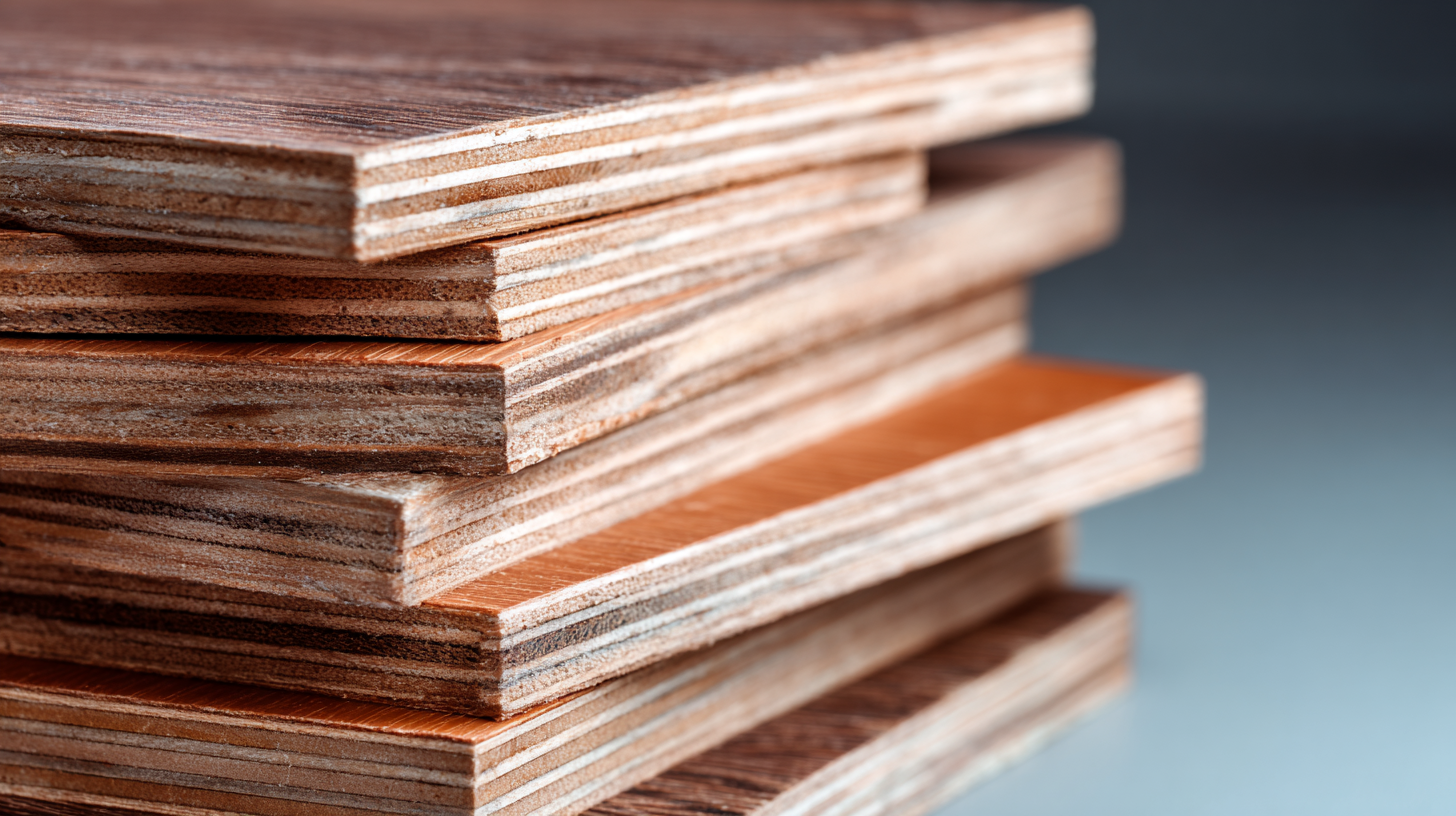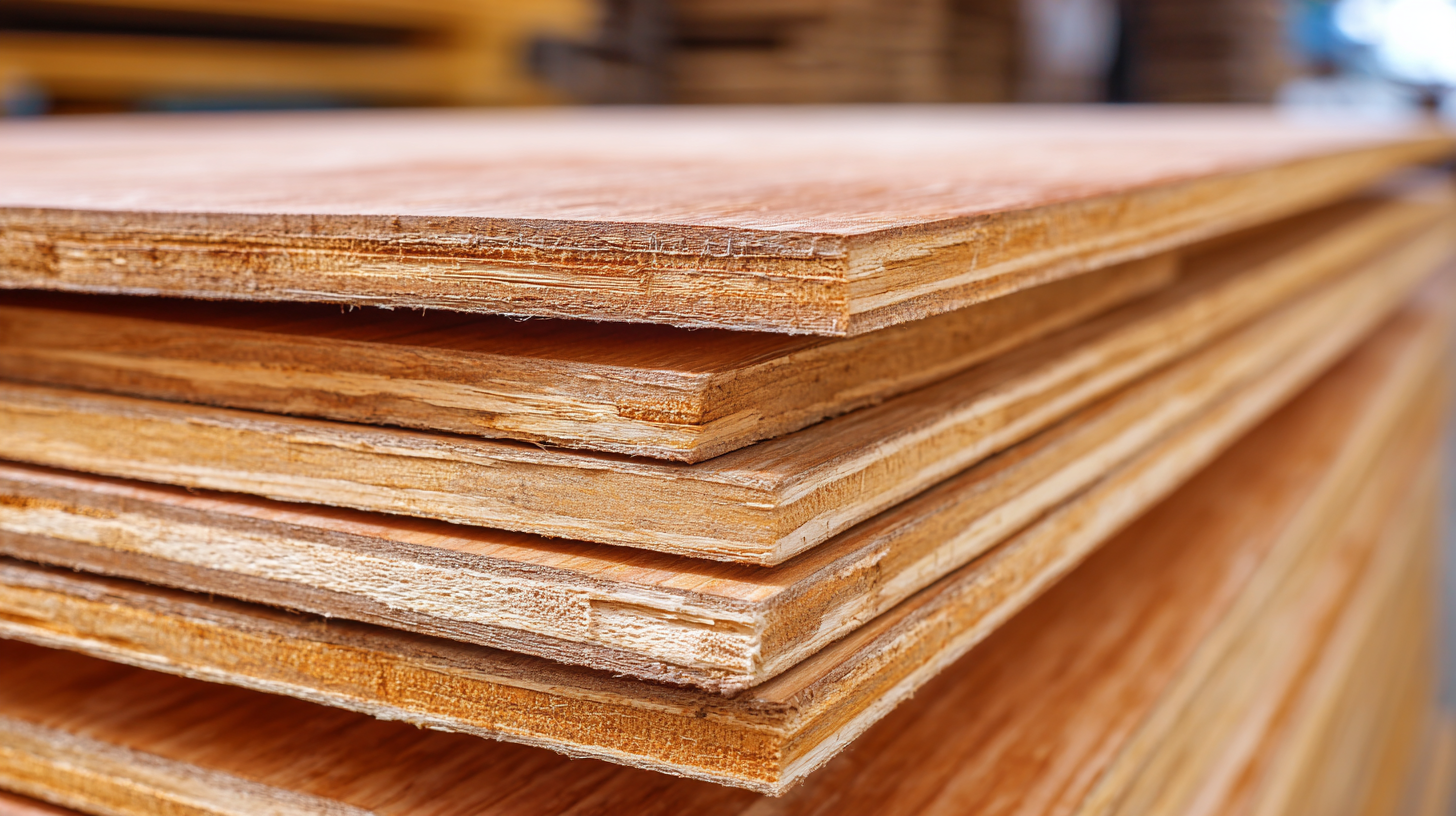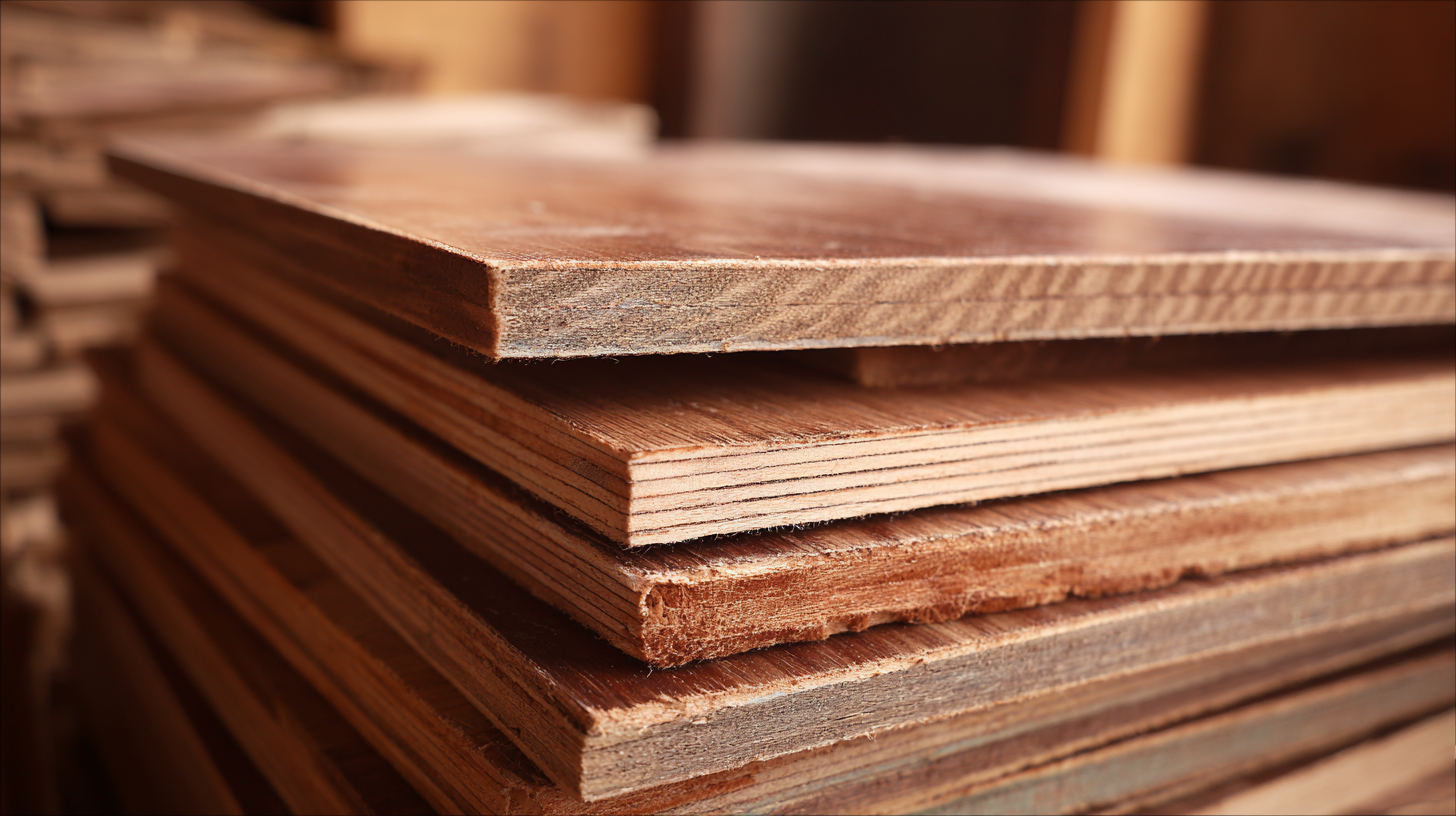In the competitive landscape of construction and furniture manufacturing, the demand for high-quality waterproof plywood has surged, driven by an increasing focus on durability and performance in diverse applications. According to a report by Grand View Research, the global plywood market is projected to reach USD 95.92 billion by 2025, with waterproof plywood standing out as a key segment due to its enhanced resistance to moisture and environmental stressors. Additionally, the rise in home renovations and infrastructural developments globally further fuels this demand, necessitating effective sourcing strategies to obtain the best quality products. As businesses seek to capitalize on this growth, understanding the nuances of sourcing waterproof plywood effectively is crucial for maintaining competitive advantage and ensuring product longevity. This blog will delve into the top strategies for sourcing the best waterproof plywood in global markets, equipping industry professionals with essential insights to make informed decisions.

When sourcing waterproof plywood in global markets, it's crucial to prioritize quality standards to ensure your materials meet the rigorous demands of various applications. The emergence of Quality Control Orders (QCO) by governments, particularly in India, is a significant step toward standardizing plywood quality. By setting clear specifications for both domestic and international manufacturers, these regulations help ensure that products like waterproof plywood adhere to international standards, enhancing reliability in supply chains.
Moreover, advancements in defect detection technology, such as digital holographic interferometry, are revolutionizing the quality assurance processes within the plywood industry. These techniques allow for precise identification of defects, ensuring that only the highest quality products reach the market. As the plywood market is projected to grow substantially, driven by increasing demands in sectors like furniture manufacturing, understanding and implementing these quality standards will be essential for businesses looking to thrive in a competitive landscape. By focusing on these strategies, companies can better position themselves to source the best waterproof plywood available while contributing to the enhancement of global supply chains.
When sourcing waterproof plywood in global markets, evaluating suppliers is crucial to ensure both reliability and quality. The first step in this evaluation process is to thoroughly research potential suppliers. Look for companies with a proven track record in producing high-quality plywood, and check their certifications, such as ISO or other industry standards. Customer reviews and testimonials can provide valuable insights into the supplier's reputation and product performance, helping you make informed decisions.
Another key factor to consider is the supplier's manufacturing capabilities. Reliable suppliers should have modern facilities with advanced technology that ensures consistent product quality. Additionally, inquire about their quality control processes and how they handle defects or returns. It's also beneficial to assess their ability to meet your specific requirements, such as custom sizes or finishing options. Establishing a good line of communication with potential suppliers can further enhance your relationship, allowing for better negotiations and service. By carefully evaluating these aspects, you can confidently select the best suppliers for waterproof plywood that meets your needs.

Innovative manufacturing technologies are playing a pivotal role in enhancing the durability of waterproof plywood, a crucial material for various construction and design applications. Advances in adhesive formulations have led to the development of high-performance glues that significantly improve the moisture resistance of plywood. These modern adhesives not only reduce water permeability but also increase the overall strength and longevity of the panels, making them ideal choices for both interior and exterior projects.
Additionally, innovative processes such as heat treatment and pressure laminating are being employed to further bolster the waterproof characteristics of plywood. Heat treatment involves exposing the wood to elevated temperatures, which modifies its cellular structure, enhancing resistance to moisture and decay. On the other hand, pressure laminating applies intense pressure and heat to bond thin layers of plywood with waterproof resins, creating robust panels that can withstand harsh environmental conditions. These technological advancements are crucial for manufacturers looking to meet increasing market demands for durable, sustainable, and high-quality waterproof plywood.

When sourcing waterproof plywood, the emphasis on sustainability has gained considerable importance in today’s global markets. Environmentally friendly practices not only minimize the ecological footprint of production but also appeal to a growing consumer base that values sustainable products. One of the critical strategies in sourcing environmentally friendly waterproof plywood is prioritizing suppliers who adhere to responsible forestry practices. Certifications such as the Forest Stewardship Council (FSC) ensure that the timber is sourced from responsibly managed forests, helping to maintain biodiversity and prevent deforestation.
Moreover, utilizing adhesive technologies that are low in volatile organic compounds (VOCs) is essential for producing safer and more sustainable plywood. By selecting manufacturers who prioritize eco-friendly adhesives, buyers can significantly reduce the health risks associated with toxic emissions. Additionally, leveraging local resources can further enhance sustainability, as it reduces transportation emissions and supports regional economies. By implementing these strategies, companies can source high-quality waterproof plywood while fostering a commitment to sustainability in their supply chains.
When sourcing the best waterproof plywood globally, understanding trade regulations and tariffs is essential. Different countries have unique import and export laws that can significantly impact costs and availability. Compliance with these regulations not only helps avoid costly penalties but also ensures a smooth sourcing process. For instance, countries may impose tariffs on certain plywood types, influencing pricing strategies. It's crucial for importers to stay informed about these regulations, as they can vary widely depending on the plywood's origin and destination.
In addition to tariffs, other trade policies, such as quotas and standards on quality and environmental impact, play a role in sourcing strategies. Due diligence regarding certifications and compliance can strengthen negotiation positions and minimize delays. Collaborating with experienced local partners who understand the nuances of the market can also provide valuable insights. By navigating these complexities, businesses can successfully source high-quality waterproof plywood while maintaining compliance and optimizing logistics.
